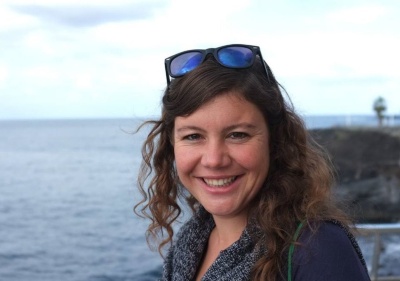Stephanie Wegmann
What do you find fascinating/challenging about energy research and the energy transition?
Most of the today’s energy comes from non-renewable resources, which puts a lot of stress on the environment and emits many pollutants. At the same time, it is difficult to reduce our energy demand. The opposite is true: we use more and more energy in our lives every day, every year. I believe that this system will collapse one day. Therefore, there is a big opportunity to contribute by developing ways to harvest renewable energy or solutions to suitably deal with existing resources without limiting our day-to-day lives. I like to work on and develop solutions, from which people and/or the environment can benefit. Therefore, I am motivated to give my best to develop new solutions in the field of energy.
What are your research topics and what is your role within the SCCER Mobility?
I develop new and more efficient processes and solutions for plastic composite projects. An important part is developing new functional parts made from recycled plastic materials. Within SCCER Mobility, I am working on the life cycle assessment (LCA) of different composite production processes to produce a bonnet for a car. In our team, we develop more efficient production routes for composite materials. The goal of the LCA is to analyze these new routes and compare them to the current production pathways for metal bonnets. The lifetime and disposal of the bonnet will also be included, which will help in assessing the potential of these new processes to save energy in the mobility sector through light weighting.
Why did you become a scientist?
When I was a child, it was my dream to become a pilot or flight controller. During my youth, I started to be interested more and more in sports and the human body. However, as my father is a doctor I did not want to follow the same path and study medicine. During high school, physics and mathematics caught my biggest interest. Therefore, after finishing secondary school, it was clear that I wanted to study at ETH with the dream of developing new items to make life more comfortable. Developing solutions that promote change still motivates me and gives me the energy for most of my actions in life.
What are your main career highlights?
For me the biggest highlight in my very young career was starting a position in industry after finalizing my Master’s degree at ETH. It was great to find out that I could use and apply much of what I had learned during my studies. Besides learning scientific fundamentals at ETH, I also acquired new work strategies and improved my perseverance. On the other hand, I also learned a lot during my first year working as an engineer, especially that science and practice can be very different from each other.
How do you think mobility will change in the next 10 years and what role will renewable energy play?
Mobility is becoming more and more important, not only in the business sector but in private life as well. As non-renewable energy resources are limited, I hope (and believe), that renewable energy will play a bigger role in the mobility sector than it does today. In 10 years, I think the entire mobility system will again increase its speed: everything will be interconnected and make our lives even faster-paced. In the midst of this, we have to find ways to deal with the resources we have without destroying the entire environmental system. I do not believe that only one solution exists to solve this problem. However, I hope that we can find a way for all parts of society and the natural world to survive.
What is your "work-life-balance" recipe?
Being outside in the nature gives me the perfect balance to work. There I can zone out and recharge my batteries. I am lucky and have the opportunity to cycle to work. While biking, I can relax, follow my thoughts or give everything to let out all my energy. I like to spend time gardening or just relaxing in the garden around my house and I also enjoy taking walks in nature. Another important thing I like to do is cooking and trying out new recipes. When I cook, I can leave everything behind me and delve into another world.
Can you provide recommendations for young scientists wishing to pursue a career in the field of (energy) research?
I think the most important thing is to pursue what you really like and not shy away from challenges. If you do this, you will have the energy to persevere during difficult times (which for sure will come independent of what you do). So if you want to become a researcher (as a women or a man) follow your path and never give up. You will meet people who are critical of your decisions, listen to them, but in the end, it is your life and if you are sure, go further and follow your dreams.
Text and picture: Stephanie Wegmann, January 2020
!!! This document is stored in the ETH Web archive and is no longer maintained !!!
